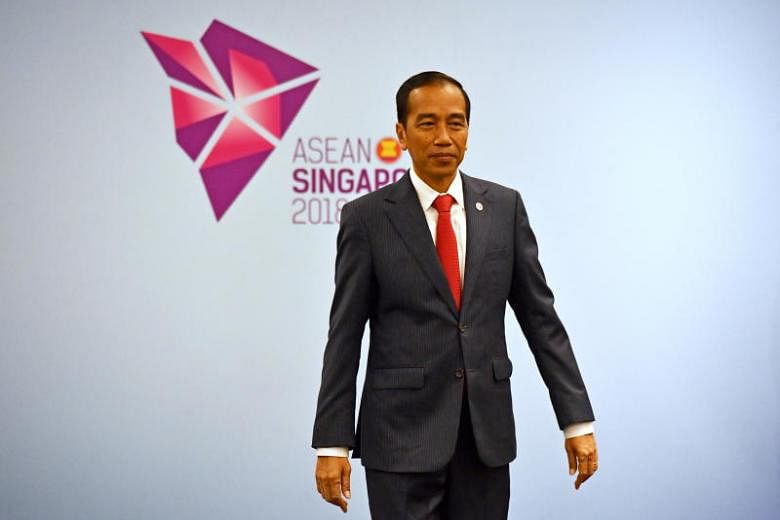SINGAPORE - Indonesia, the Asean coordinator for what would be the world's largest free trade pact, lauded the "substantial progress" in the negotiations which saw leaders agree to complete the deal next year.
President Joko Widodo "had stressed the importance of a mandate" to agree the Regional Comprehensive Economic Partnership (RCEP) and the progress so far has been good, the country's Foreign Minister Retno Marsudi said on the sidelines of the Asean Summit at Suntec Singapore International Convention and Exhibition Centre yesterday.
"We are at the point of no return. We will build on assets and existing achievements to continue the negotiations," she said, quoting the president. "All the leaders have given their strong commitment to conclude the negotiations next year."
Mr Joko has outlined four conditions he felt members should keep in mind as they strive to complete the pact next year: flexibility to achieve an agreement, recalibration of ambitions towards a common interest, discipline in the discussion of targets as well as concrete cooperation and a constructive attitude.
The progress of the Asean-led pact, which covers nearly half the world's population, has been in the spotlight amid ongoing trade tensions between China and the US. Asean countries support for the deal, saying it will open global trade and investments.
Malaysian Prime Minister Mahathir Mohamad has said its completion would validate Asean's role in economic integration of this region, but noted that some Asean countries would require assistance in meeting market aspirations of developed economies.
"What we require is fair and mutually beneficial trade and investment cooperation rather than the dominance by anyone," Tun Dr Mahathir said in a keynote speech at the Asean Business and Investment Summit held at the Marina Bay Sands convention centre on Tuesday.
His Foreign Minister Saifuddin Abdullah, who presented the argument on his behalf, said part of Dr Mahathir's intervention at the summit was to highlight that Malaysia's move to remove trade barriers had gone unreciprocated, the Malay Mail reported.
"While countries like Malaysia are expected to eliminate or reduce our tariffs to provide greater market access to others, this is not reciprocated by some advanced countries in the current negotiations," he tweeted on Wednesday.


